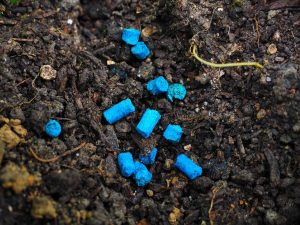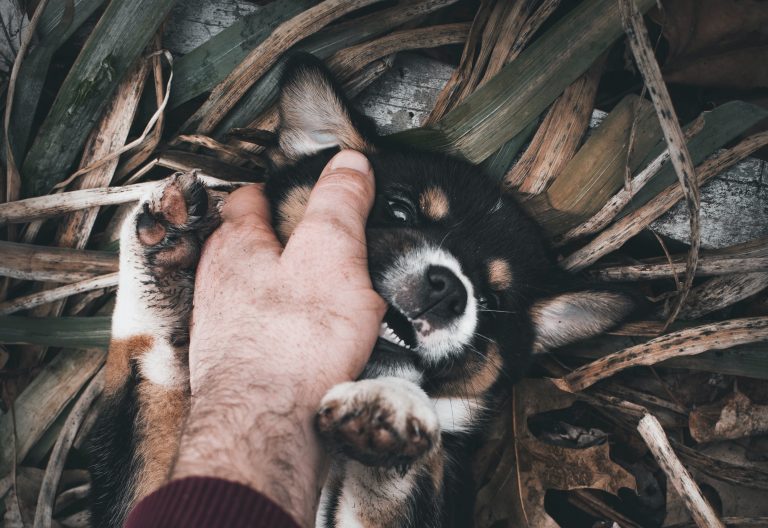Do you know what to do if you think your dog or cat is get poisoned? With this 6 steps you can save your 4-legged friend’s life!
Our dogs tend to eat everything, anywhere at any time. They face with many harmful factors during the day. Especially puppies and young dogs use their senses to learn the environment. They see, smell and EAT. From shoes to the couch edges, toothpaste to medicines… They are able to chew or eat everything they want. And when you realize this, it may be too late to stop them.
Not only at home, but on the streets, they are also using their EATING senses. But don’t forget, we are not living in a pink world full of love.
Especially some dog haters’ acts take on more and more cruel forms. They prepare some special baits to harm or even kill your pet. Shattered glass, nails, razor blade enwrapped with some tasty meat or snail grain, rat poison or other toxic substances are made attractive to the dogs and cats with sausages, meatballs…

Usually, the toxic baits are located in public places and it is hardly a chance for you to protect your pet from poison baits, even your dog is leashed. At least dogs can be trained not to eat from the ground but if you have a cat which is an out-goer, it is even harder to protect them.
You may see abnormal symptoms in your dog, depending on the content of the toxic substance. The sooner you notice and talk with your veterinarian, the better the prognosis.
Note that poisonous agents can be taken not only by the ingestion but also by contact with the skin or by inhalation.
What can you do?
Remember that in the case of poisoning you are racing against time!
It should be noted that you need to ask for professional advice from a veterinarian or Poison Center. But you can do the following steps before you go to a veterinarian.

- First, do not panic.
- You need to take away your pet immediately from the area and ensure that no other animal is exposed to toxic substances.
- Place the remaining toxic material in a location out of reach from your pets. Store the package, vial or container of toxic material if you have. You will be needing the give all information while talking to your veterinarian.
- Check your pet’s vital values or signs of illness (ex: breathing rate, behaviour, heartbeat).
- Do not give your pet any food, medicine like active coal or any home remedies that you found on the Internet. Do not try to induce your pet vomiting. Sometimes vomiting can be harmful.
- Call for help as soon as possible. Keep the address and phone number of the veterinary clinic, animal hospital or poison center nearby.
Do not wait
In the case of intoxication, do not wait until your pet shows some signs of toxication. Remember, the faster you go to your veterinarian, the more chances your pet has to be saved.
There is a narrow window of time to reduce the absorption of harmful substances from your pet’s body.
Here are some signs of illness that your dog show:
- Vomiting
- Diarrhea
- Miosis: excessive constriction of the pupil
- Mydriasis: dilatation of the pupil
- Seizure
- Tiredness-sleepiness
- Black feces (bleeding may come from the stomach, because of the acid in the stomach blood color turns to black)
- Heavy panting
- Dyspnea (difficult breathing – respiratory failure)
- Pale gums (pale mucous membranes)
- Increased drooling
- Fainting
- Excessive salivation
- Lack of coordination
Most importantly, if you see some of these symptoms after toxic exposure, you should take your dog immediately to the veterinarian.
There are 8 Poison Control Centers in Germany you can contact 24 hours. Here are the phone numbers of them:
- Berlin – Giftnotruf der Charité – Universitätsmedizin Berlin Phone: +49-30-19240
- Bonn – Informationszentrale gegen Vergiftungen : +49-228-19240
- Erfurt- Gemeinsames Giftinformationzentrum der Lander Mecklenburg-Vorpommern und Sachsen-Anhalt sowie der Freistaaten Sachsen und Thüringen: +49-361-730730
- Freiburg- Informationszentrale für Vergiftungen: +49-761-19240
- Göttingen- Giftinformationzentrum Nord- der Lander Bremen, Hamburg, Niedersachsen und Schleswig-Holstein: +49-551-383180
- Hamburg/Saar- Informations- und Behandlungszentrum für Vergiftungen: +49-6841-19240
- Mainz- Beratungsstelle bei Vergiftungen: +49-6131-19240
- München- Giftnotruf München: +49-89-1924
catsigns of intoxication



